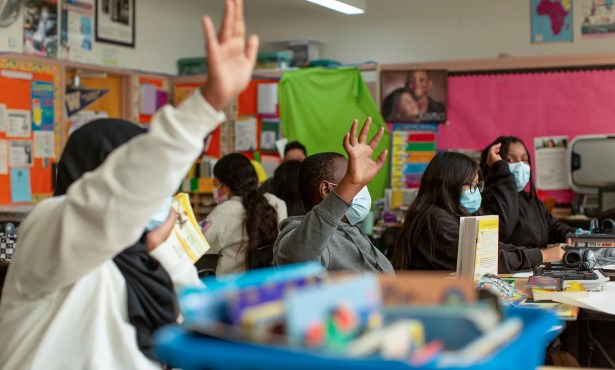With its partner Federal Express, Goleta-based Direct Relief will be delivering 1.75 million doses of COVID-19 vaccine to several countries hit hard by the pandemic — 1.35 million of them donations from the United States. Paraguay, which had 390 new cases per million people last Friday, compared to 46 per million in the U.S., is on the destination list, as are Mexico, Belize, and Bolivia.
The aid shipments started on Tuesday, said Direct Relief spokesperson Tony Morain, and will continue through Saturday. Altogether, 1.35 million doses of the Johnson & Johnson vaccine will be flown to Mexico under refrigerated conditions aboard jets operated by Federal Express, apparently the first shipment of the “one and done” vaccine to Mexico, Morain said.
“I am deeply grateful to Direct Relief as well as to Eddie Mendoza, Director of Direct Relief México, for cold chain donations to Belize, Bolivia, and Paraguay, as well as the support to bring vaccines from the United States,” said Martha Delgado Peralta, an undersecretary with Mexico’s Ministry of Foreign Affairs. “With your help, lives are being saved!”
In turn, Mexico is providing 400,000 doses of AstraZeneca to its neighbors — 100,000 doses to Belize, and 150,000 to both Bolivia and Paraguay. The Mexican Air Force will be making the deliveries using Direct Relief’s shipping containers outfitted for both cold storage and safe packaging.
The shipments should help increase the vaccination rates in the small countries. Paraguay, which has a population of about 7 million, has vaccinated about 5 percent of its people. In Bolivia, which has about 11.5 million people and where 203 new cases were reported per million residents, the vaccination rate is about 13 percent. Belize has fared somewhat better; the tiny country of about 400,000 people has vaccinated about 11 percent of its population and suffers an infection rate of about 18 per 100,000 people.
As for the safety considerations of the two vaccines, a small number of recipients of both medications have reported blood clots. The U.S. suspended the use of the Johnson & Johnson vaccine for about two weeks while health officials deliberated its safety and alerted doctors to the signs to watch for in vaccinated patients. The U.S. released it for use after determining 15 cases had occurred among nearly 8 million people vaccinated, mostly in women between the ages of 18 and 49. As for AstraZeneca, which has not yet been approved for use in the U.S., the U.K. advised people under the age of 30 to take a different vaccine if possible; of the 25 million people who’d had the AstraZeneca vaccine, 62 of them developed clots in veins leaving the brain and 24 in the abdomen; of those cases, 18 were fatal. The benefits of the vaccines were largely regarded as outweighing the risks, and the World Health Organization concluded the occurrence of the clots in Europe and the U.K. was “very rare,” though it did recommend that younger individual not use AstraZeneca.
Media outlets in Mexico report the shipments come as the U.S. stock of J&J vaccine nears an expiration date for 21 million doses. Mexican officials have announced the vaccine would be used along its border with the U.S. to help reopen border crossings, as they had discussed with Vice President Kamala Harris during her visit on June 8. According to the White House, the Biden administration intends to share 80 million U.S. vaccines worldwide by the end of June to help end the pandemic.
Support the Santa Barbara Independent through a long-term or a single contribution.



